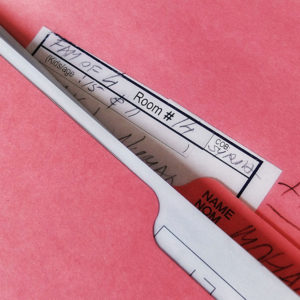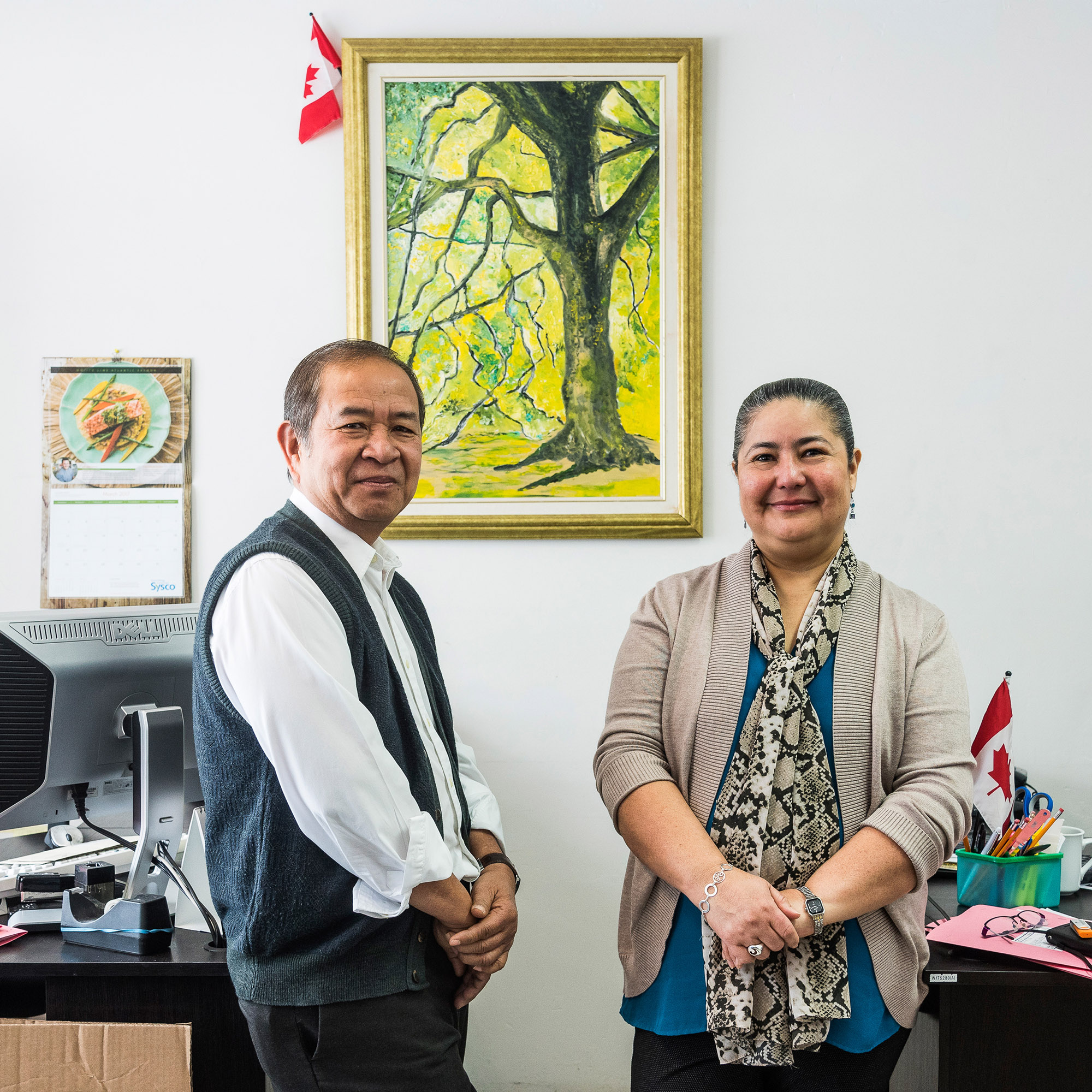Chamroeun Lay Manager | Maison Sophia | Catholic Centre for Immigrants
Lucila Cabrera Program Manager | Catholic Centre for Immigrants
—
“We try to give them the start they need to be successful in Canada.”

Maison Sophia is an unassuming low-rise apartment block sandwiched next to a busy bridge connecting Ottawa and Gatineau. It’s one of those buildings that people walk by every day without noticing, yet it’s a place that some people will never forget. It’s where many refugees spend their first night in Canada.
Chamroeun Lay has been the manager of Maison Sophia for several years. “People arrive late at night or at two or three in the morning. They’re tired from a long flight, and an even longer journey,” he says. “We welcome them and show them their room, give them something to eat and get them settled in.”
Once the morning arrives, families are welcomed with a hot breakfast and given a tour of the facilities during our “Meet & Greet” session. The centre is operated by the Catholic Centre for Immigrants (CCI), which has responsibility for receiving and orienting government-assisted refugees (GARs) in Ottawa. Spread over four floors, Maison Sophia has individual rooms for families & singles, a cafeteria, laundry facilities, training rooms, offices and play rooms for children. The hallways are lined with bulletin boards with information on health, housing, transportation and shopping. And there are maps. Many, many maps.
“Next day after their arrival, we start to inform them what they need to know about living in Ottawa. We help them submit paperwork and make sure they have all the identification they need,” shares Chamroeun. The settlement team takes the family to see a few apartments and helps them move. Most are in their new home in two to three weeks.
“We just took the challenge and moved forward.”
Maison Sophia normally welcomes 380 people each year. In 2016, 1,200 GARs arrived in three months. With room for only 96 people, the staff at Maison Sophia had to be resourceful — and fast — to find places for the newcomers to stay.
“We used three hotels and tried to create a ‘replica’ of Maison Sophia at each one,” says Chamroeun “We had settlement workers on site and offered orientation sessions & 3 meals daily at the hotels at the hotels. Every day, we had more people arriving.”
“Personally, and for the staff, it was overwhelming. Still, it was so rewarding. When you have refugees saying thank you, it gives you energy. These are human beings, not paper that you shuffle. And they need help.”
Housing was a huge challenge. “Somehow, we made it. A lot of landlords offered us help; some gave us one, two or three months free rent,” says Chamroeun. Despite the challenges, the average hotel stay was only 28 days. “That’s amazing when I look back.”
Sophia House usually welcomes 380 refugees a year. In 2016, it welcomed 1,200 in three months.
“You will not be lost when you are out there, we’re here to help.”
After a GAR family has a permanent home, CCI’s team of community support workers helps them integrate into the community.
“Our job is to offer a bridge for settling in the community,” says Lucila Cabrera, a program manager at CCI. “We help clients make informed decisions and navigate through the system, for example, registering children in school and organizing adults for language training. We work with community partners to support these families along the way.”
“It was an overwhelming but rewarding journey, welcoming the Syrians,” says Lucila. “We had to be creative and use the resources that we had. Smartphones and Google translate helped us a lot!”
“One of my favourite moments happened a few months in, when some Syrian newcomers came into our office offering to help,” says Lucila. “They didn’t know a lot, but wanted to share what they had learned, to make it easier for the more recent arrivals. That was a beautiful experience.”
“Let’s hold onto this momentum.”
Lucila and Chamroeun are both very hopeful for the future of Ottawa’s support for refugees. “Refugees who come here bring a lot of skill, determination, strength and adaptability. They are survivors. They work hard to start a new life,” says Chamroeun.
Other Ottawa settlement agencies scaled up operations to help the GARs and Privately Sponsored Refugees (PSRs) as well, including the Ottawa Community Immigrant Services Organization, Jewish Family Services, the Lebanese and Arab Social Services Association, the Economic and Social Council of Ottawa-Carleton, World Skills Employment Centre, Somali Family Services and the Ottawa Chinese Community Services Centre. In the months since the flood of early arrivals, agencies have increased programming for settlement, language, employment, counselling, youth and other services.
Local school boards welcomed many newcomer students and worked closely with Multicultural Liaison Officers (MLOs). MLOs facilitate relationships between schools and newcomer families to contribute to student success.
“We know that now more than ever, refugees need our support,” adds Lucila. “We came together in a big way to help Syrian refugees. Let’s learn from this and hold on to this momentum to continue the same level of support for every refugee that comes here.
—
Many Ottawa settlement and service agencies were active in the Syrian resettlement project, part of the support they provide to all immigrants and refugees year round.
Catholic Centre for Immigrants
Economic and Social Council of Ottawa Carleton
Immigrant Women Services Organization
Jewish Family Services
La Cité
Lebanese and Arab Social Services Agency
Ottawa Community Immigrant Services Organization
Ottawa Chinese Community Service Centre
Somali Centre for Family Services
World Skills
YMCA-YWCA





